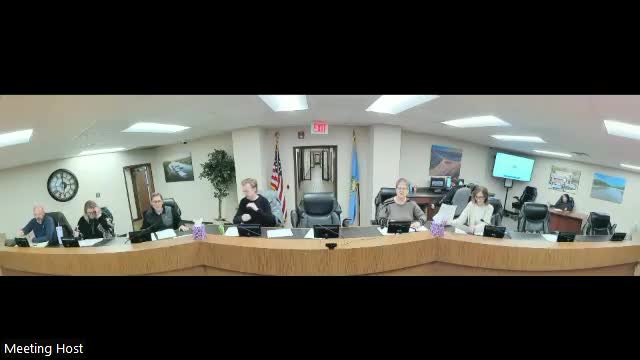Broken Arrow officials outline bond planning steps for Tahlequah
Get AI-powered insights, summaries, and transcripts
Subscribe
Summary
City manager Michael Spurgeon and Broken Arrow leaders described a five-part approach to preparing voter-backed general obligation bond packages, including consistent messaging, third-party surveys and early engineering cost estimates.
Tahlequah’s advisory committee heard a presentation from Broken Arrow officials on best practices for preparing a voter-backed bond package, with Broken Arrow City Manager Michael Spurgeon and Mayor Deborah Lembby describing lessons from Broken Arrow’s 2018 general obligation bond and its planning for a potential 2026 package.
Spurgeon said the agenda for the meeting was to “give you some suggestions and then mainly answer questions,” and then outlined five practices Broken Arrow uses when asking voters to approve capital projects: maintain a single consistent message; build a citizen advocacy and fundraising group; present only projects voters are likely to support; focus outreach on persuadable voters rather than amplifying a small, vocal minority; and commit elected officials and staff to broad public education and follow-up once projects are completed.
Why it matters: general obligation bond packages can fund streets, stormwater, public safety, parks and municipal facilities. Broken Arrow officials told Tahlequah committee members that careful public engagement, reliable cost estimates and visible follow-through on prior bond promises build voter trust and increase the chance of approval.
Broken Arrow officials described concrete steps and numbers. Spurgeon said Broken Arrow’s 2018 bond total was about $211,000,000 and that the city is now preparing a bond package that could be roughly $400,000,000 for a 2026 election while keeping the city’s tax rate unchanged because of assessed-value growth. He said the city’s assessed value rose from about $750,000,000 when he arrived to “over 1,300,000,000” today, and that private investment in Broken Arrow last year totaled about $466,000,000.
On public engagement and data: Aaron McCollum, Broken Arrow communications director, described a two-tier survey strategy. The city hired a third-party firm (Polco) for a comprehensive community survey that produced nearly 4,000 responses and a roughly 3% margin of error, McCollum said, and then used targeted “micro” surveys to drill into priorities such as roads and sidewalk connectivity. He said the micro surveys yielded prioritized lists of candidate projects for the transportation proposition.
On project selection and cost estimates: Spurgeon and assistant city manager Kenny Schwab emphasized that departments should begin with wish lists but that final project lists need independent engineering cost confirmation. Spurgeon said that when a city schedules multi-year bond packages, consultants must apply time‑value adjustments and contingencies because construction costs can rise between planning and execution.
Also discussed were financing options and coordination: Broken Arrow officials described the difference between general obligation bonds (pledging property-tax capacity) and revenue bonds (pledging specific revenues), and urged Tahlequah to include legal counsel early to confirm that proposed uses conform with statutory and ballot-language requirements.
What happened next: Broken Arrow staff offered Tahlequah copies of their 2018 bond materials and a project-cost worksheet; they also offered follow-up technical assistance. Tahlequah staff said they will coordinate department‑level project lists and use a consistent submission form to allow consultants to validate estimates.
The meeting then moved to a public‑comment segment in which residents and local officials described specific local projects they want considered for capital funding, including drainage work, an animal shelter, fire-station planning, a library expansion and a multigenerational respite facility for people with developmental disabilities.
Tahlequah committee members said they will continue the internal process of collecting project lists, then coordinate with consultants for cost confirmation before presenting a recommended package to the city council.
